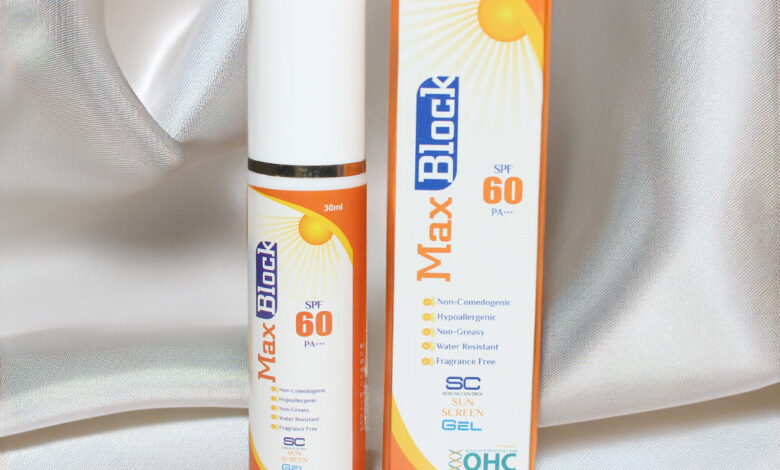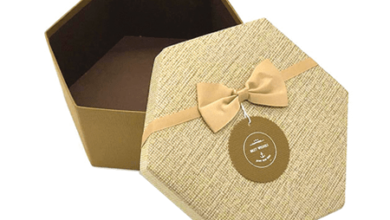Ultimate Guide to the Best Sunblock in Pakistan

Sun protection is vital for healthy skin. The sun emits harmful ultraviolet (UV) rays that can damage your skin and lead to various issues. Using the best sunblock in Pakistan is a crucial step in your skincare routine. This article will help you understand the importance of sunblock how to choose the best one, and tips for proper application.
What is Sunblock?
Sunblock is a product designed to protect your skin from the sun’s harmful rays. It works by either absorbing or reflecting UV rays. Sunblock usually comes in creams, lotions, sprays, or gels. Applying sunblock helps prevent sunburn, skin aging, and skin cancer.
Why is Sunblock Important?
Using sunblock is important for several reasons:
- Prevents Sunburn: Sunburn can cause redness, pain, and peeling skin. It is uncomfortable and can take days to heal.
- Reduces Risk of Skin Cancer: Long-term exposure to UV rays increases the risk of skin cancer. Using sunblock regularly can help lower this risk.
- Slows Skin Aging: UV rays can cause wrinkles, fine lines, and dark spots. Protecting your skin can keep it looking younger for longer.
- Prevents Hyperpigmentation: Sun exposure can lead to dark spots on your skin. Sunblock helps to prevent these spots from forming.
Types of Sunblock
When choosing the best sunblock in Pakistan, it’s essential to understand the different types available. There are two main types of sunblock: chemical and physical (or mineral).
1. Chemical Sunblock
Chemical sunblock absorbs UV rays. It usually contains ingredients like avobenzone, octisalate, and octocrylene. These ingredients transform UV rays into heat, which is then released from the skin. Chemical sunblocks are often lightweight and easier to apply, but they may irritate sensitive skin.
2. Physical (Mineral) Sunblock
Physical sunblock contains ingredients like zinc oxide or titanium dioxide. These ingredients sit on top of the skin and reflect UV rays. Physical sunblocks start working immediately upon application and are less likely to irritate sensitive skin. They can also provide additional benefits, such as soothing inflammation.
How to Choose the Best Sunblock in Pakistan
When looking for the best sunblock in Pakistan, consider the following factors:
1. Broad-Spectrum Protection
Always choose a sunblock that offers broad-spectrum protection. This means it protects against both UVA and UVB rays. UVA rays can cause skin aging, while UVB rays are responsible for sunburn. Broad-spectrum sunblock helps protect your skin from both types of damage.
2. SPF Rating
The SPF (Sun Protection Factor) rating indicates how long the sunblock will protect your skin from UVB rays. Look for a sunblock with an SPF of at least 30 for daily use. Higher SPF ratings offer more protection, but no sunblock can block 100% of UV rays.
3. Water Resistance
If you plan to swim or sweat, choose a water-resistant sunblock. This type of sunblock stays effective for a specific time while you are in the water or sweating. Look for labels that indicate the water resistance duration (usually 40 or 80 minutes).
4. Skin Type
Your skin type plays a significant role in choosing the right sunblock:
- Oily Skin: Look for oil-free or gel-based sunblocks. These formulas are lightweight and won’t clog pores.
- Dry Skin: Choose moisturizing sunblocks that contain hydrating ingredients like glycerin or hyaluronic acid.
- Sensitive Skin: Opt for physical sunblocks with zinc oxide or titanium dioxide. These ingredients are less likely to irritate sensitive skin.
5. Ingredients
Check the ingredient list for any allergens or irritants. Avoid sunblocks with fragrances, parabens, or harsh chemicals if you have sensitive skin. Instead, look for natural or hypoallergenic options.
How to Apply Sunblock Properly
Applying sunblock correctly is essential for effective protection. Follow these steps for proper application:
1. Apply Generously
Use enough sunblock to cover all exposed skin. A good rule of thumb is to use about one ounce (a shot glass full) for the entire body. Don’t forget areas like your ears, neck, and the tops of your feet.
2. Apply Before Going Outside
Apply sunblock at least 15 to 30 minutes before sun exposure. This allows your skin to absorb the product and start protecting against UV rays.
3. Reapply Regularly
Reapply sunblock every two hours, especially if you are sweating or swimming. If you are using a water-resistant sunblock, reapply according to the product instructions. Always reapply after towel drying.
4. Use It Daily
Make sunblock a part of your daily routine. Even on cloudy days, UV rays can still reach your skin. Apply sunblock every day, even if you plan to stay indoors.
Common Misconceptions About Sunblock
There are several myths about sunblock that can lead to confusion. Let’s clarify some of these misconceptions:
1. I Don’t Need Sunblock on Cloudy Days
Many people believe that sunblock is unnecessary on cloudy days. However, up to 80% of UV rays can penetrate clouds. Always wear sunblock, even when it’s overcast.
2. Dark Skin Doesn’t Need Sunblock
While darker skin has more melanin, it can still get sunburned and damaged by UV rays. Everyone, regardless of skin tone, should use sunblock to protect their skin.
3. Higher SPF Means Better Protection
While higher SPF ratings offer more protection, the difference is not as significant as it seems. SPF 30 blocks about 97% of UVB rays, while SPF 50 blocks about 98%. No sunblock blocks 100% of UV rays. Regular reapplication is more important than just relying on a higher SPF.
Best Practices for Sun Safety
In addition to using sunblock, here are some best practices for sun safety:
- Seek Shade: Try to stay in the shade, especially during peak sun hours (10 AM to 4 PM).
- Wear Protective Clothing: Long sleeves, hats, and sunglasses can provide additional protection from UV rays.
- Stay Hydrated: Drink plenty of water to keep your skin healthy and hydrated.
Final Thought
Using the best sunblock in Pakistan is essential for protecting your skin from harmful UV rays. Choose a product that offers broad-spectrum protection, has an appropriate SPF rating, and suits your skin type. Apply it generously and regularly to ensure maximum effectiveness. By making sunblock a part of your daily routine and following sun safety tips, you can maintain healthy and youthful skin for years to come.





